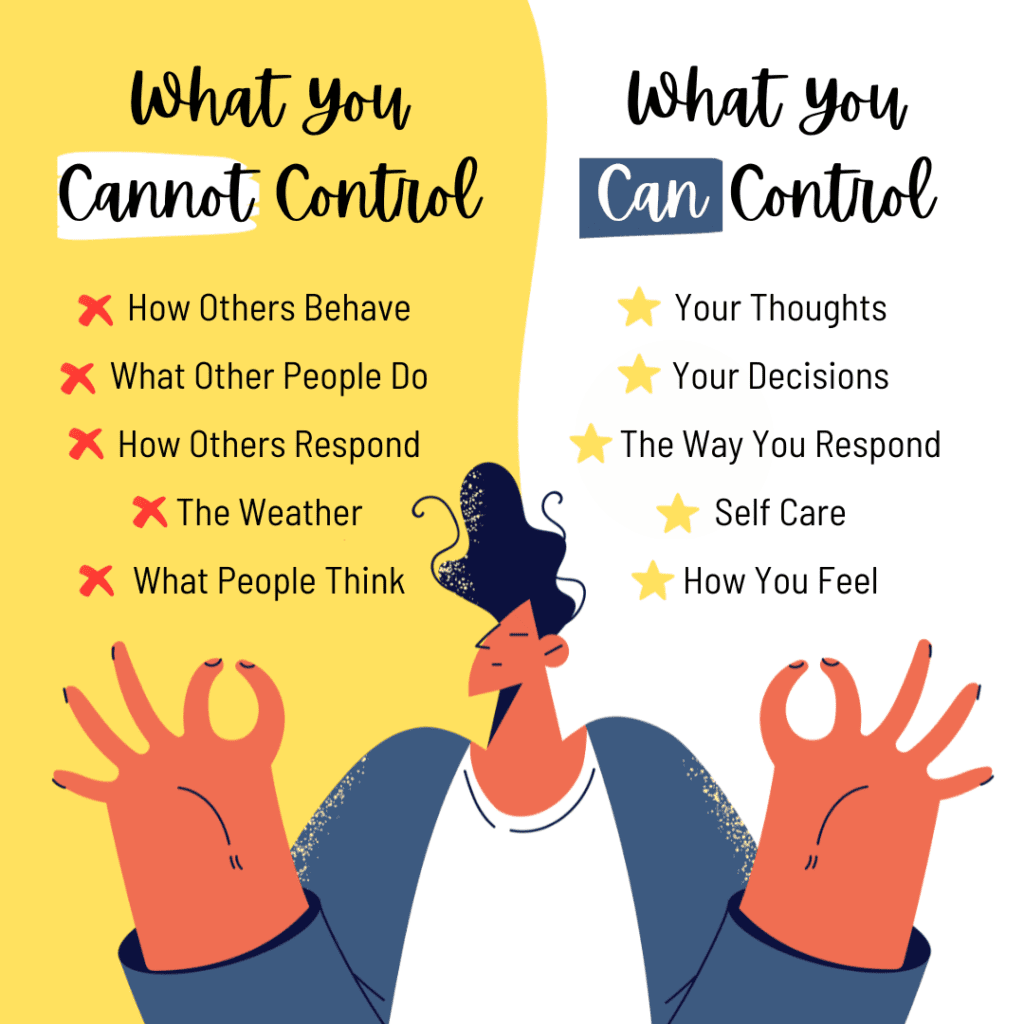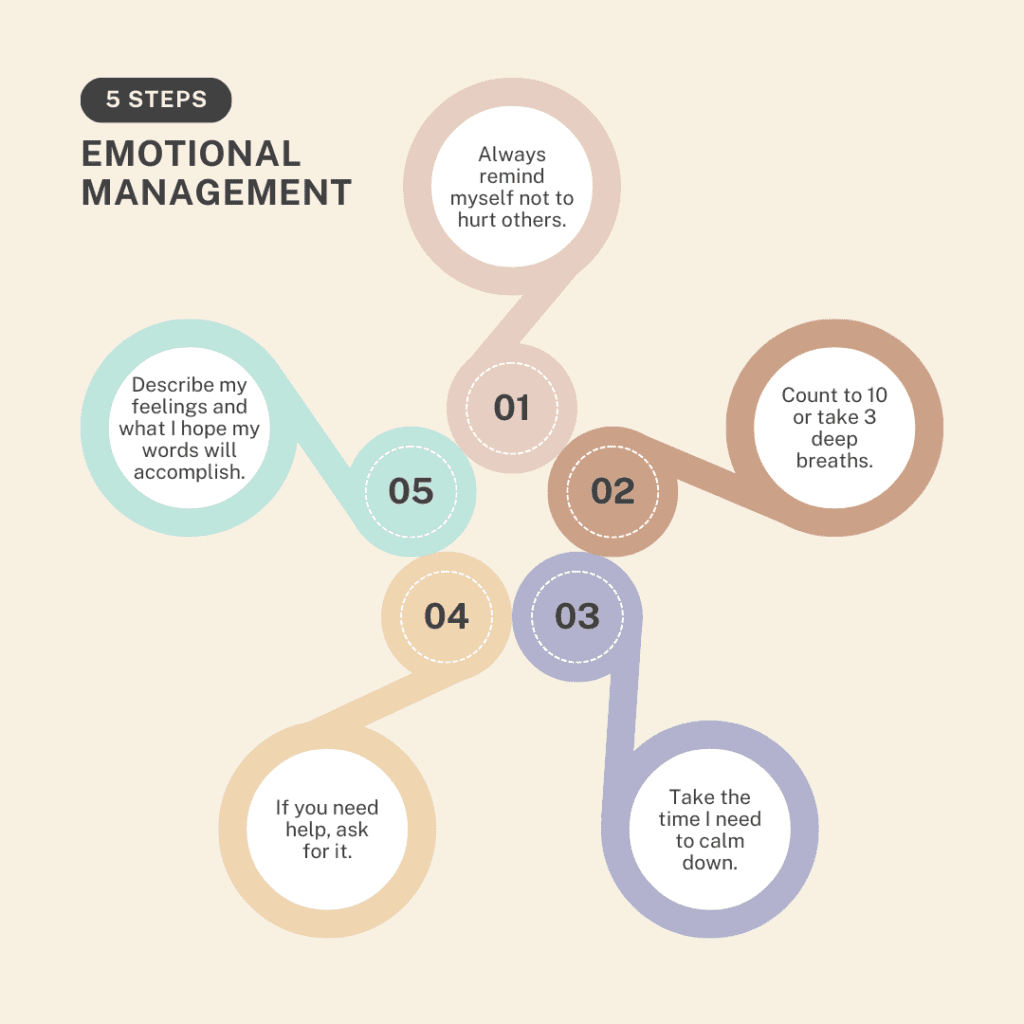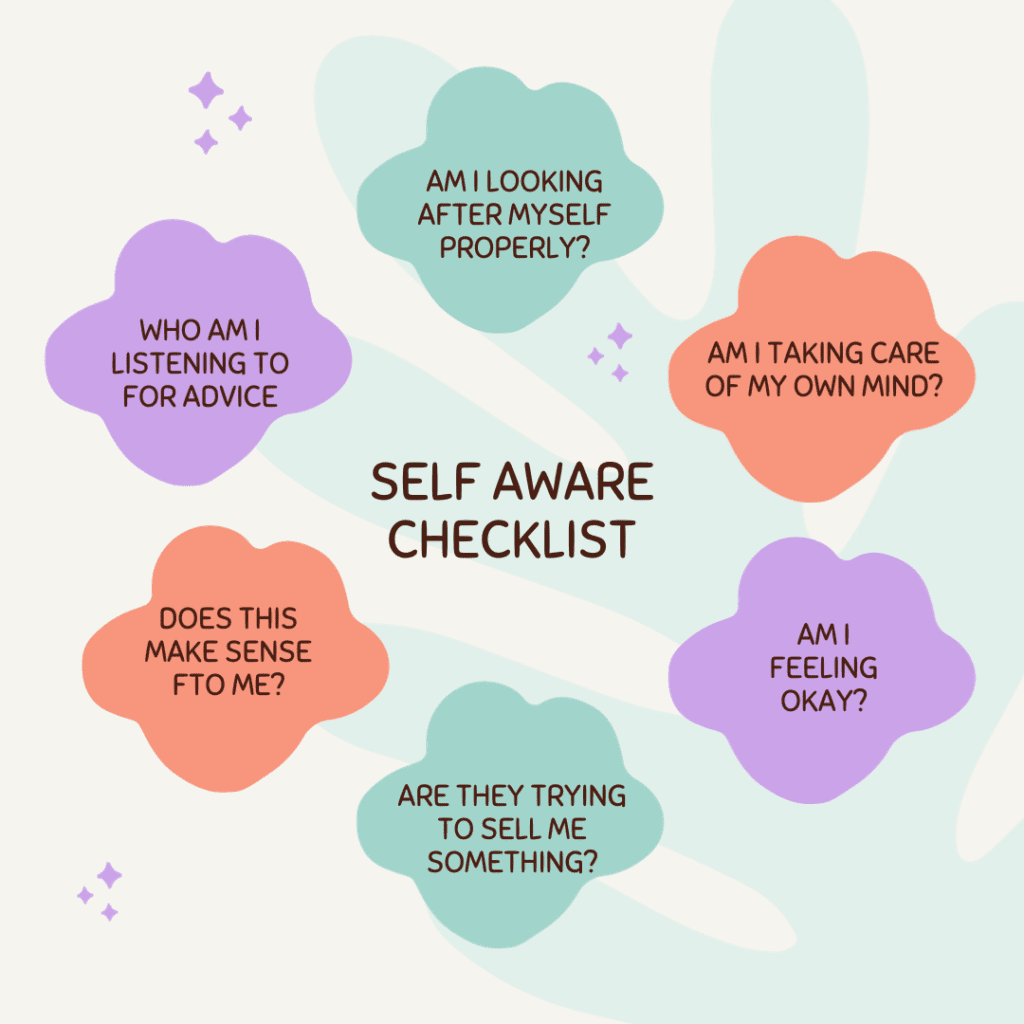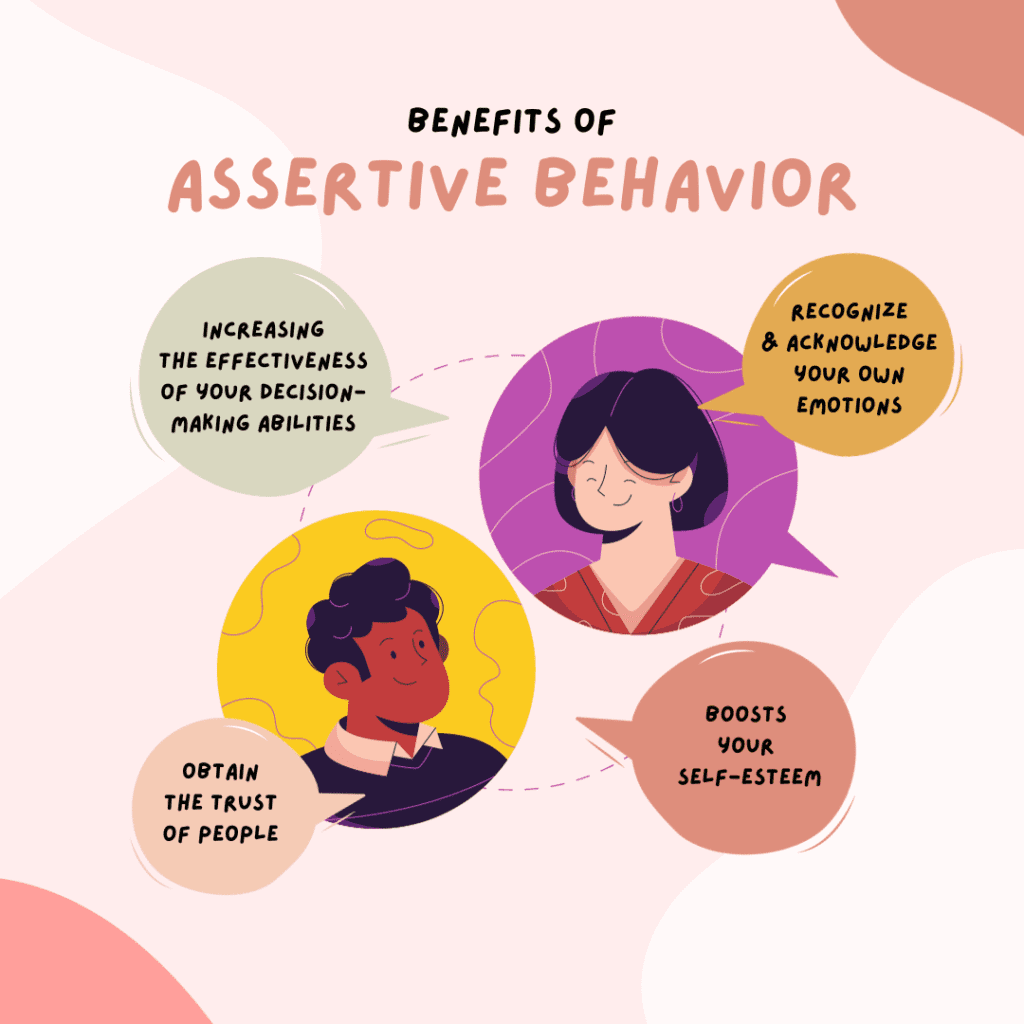
Self-Control : Introduction
Are you tired of feeling like your thoughts and actions are not truly your own? Do you constantly find yourself being swayed by outside influences and feeling like you have lost the self-control of your own mind? The truth is, you are not alone. In today’s world, we are bombarded with constant messages and manipulations from various sources, causing us to lose touch with our true selves.
It’s time to take a stand and reclaim your self-control. Mind your own mind and break free from the grip of mind manipulation. In this blog post, we will discuss 6 steps to help you take control of your own mind and find true freedom in self-control.

Understand the Mechanisms of Mind Manipulation
In the battle against mind manipulation, knowledge is power. It’s essential to arm ourselves with a solid understanding of the tactics used by manipulators to influence our thoughts and actions, and to steal our self-control. These often involve exploiting our cognitive biases, such as our tendency to see patterns where none exist or to rely on information that confirms our pre-existing beliefs.
Manipulators also play on our emotional vulnerabilities, using techniques like gaslighting, where they manipulate us into questioning our own memory, perception, or sanity. They create an atmosphere of fear or guilt, playing on these emotions to sway our decisions or opinions.
Another prevalent manipulation tool is misinformation or propaganda. This tactic involves deliberately spreading false or misleading information to shape public opinion or obscure the truth. Propaganda is often subtle and woven into the fabric of the media we consume, making it particularly dangerous and insidious, leading us to give up our self-control.
Social pressure is another lever often pulled by manipulators. They can create a false sense of consensus or popularity around a particular viewpoint, making us feel as though we’re the odd one out if we don’t conform.
Understanding these manipulation mechanisms is vital in developing a robust defense. By recognizing when these tactics are at play, we can step back, analyze the situation, and make conscious decisions rather than being unknowingly swept along by manipulation. Remember, awareness is the first step to resistance. Take back your self-control.

Cultivate Emotional Intelligence with Self-Control
Strengthening emotional intelligence is a vital step towards liberating ourselves from mental manipulation. This capability lets us recognize, comprehend, and manage not just our emotions but those of others as well. Emotional intelligence, often abbreviated as EQ, equips us with the power to differentiate authentic emotions from the ones manipulators impose on us.
Think of emotional intelligence as a torch that illuminates the otherwise dim and complex path of our emotions. It helps us discern the real emotions underlying our thoughts from the faux ones. Moreover, EQ enables us to disengage our feelings from our thoughts, an important skill when trying to resist the powerful lure of manipulators.
Building up your emotional intelligence is not an overnight task; it demands patience, practice, and introspection. You can start by becoming more in tune with your emotions. This could be through daily journaling, meditation, or simply taking moments of silence to check in with your feelings. Doing so will help you identify patterns in your emotional responses and better understand what triggers certain emotions in you.
Next, practice empathy. Putting yourself in another person’s shoes allows you to understand their emotions and viewpoint. This understanding of others’ feelings can help you detect when someone is trying to manipulate your emotions.
Finally, learn how to manage your emotions to retain your self-control. This does not mean suppressing or ignoring them but rather acknowledging them and deciding how to respond in a way that aligns with your values and goals. When you have a firm grip on your emotional responses, you’re less likely to be controlled by external influences.
Cultivating emotional intelligence is akin to developing an emotional compass, guiding us away from the snares of manipulation and towards our genuine thoughts and feelings. Remember, the more proficient we become in understanding and managing our emotions, the less likely we are to fall victim to emotional manipulation and those who wish to take your self-control and personal agency.

Promote Critical Thinking
Critical thinking is our intellectual armor, our line of defense against manipulation. It’s more than just a thought process, it’s a way of life. It’s about questioning the information presented to us, examining the evidence with a discerning eye, and dissecting arguments critically before allowing them to shape our perspective.
A critical thinker never takes information for granted. They dig beneath the surface, seek out inconsistencies, and explore the potential of alternative viewpoints. They understand that the loudest voice isn’t always the most accurate and that consensus doesn’t necessarily equate to truth.
Think of it as being a detective of your own mind. The clues are all the pieces of information that come your way, and your job is to investigate them, scrutinize them, and ensure they are not merely smoke and mirrors before you accept them as fact.
To promote critical thinking, start by adopting a mindset of healthy skepticism. This doesn’t mean rejecting everything outright but rather withholding judgement until you’ve had a chance to evaluate the information thoroughly. When consuming media, check the reliability of the sources, look for any potential biases, and compare the information with other credible sources.
Encourage curiosity and open-mindedness. Ask probing questions, challenge assumptions, and be willing to revise your views if the evidence warrants it. Remember, the aim isn’t to be right; it’s to arrive at the truth.
Finally, foster a sense of humility. Recognize that your knowledge and understanding are not absolute and that it’s okay, even necessary, to change your mind when new, credible information comes to light.
By cultivating a habit of critical thinking, we can pierce through the veil of falsehoods, resist persuasive tactics, and safeguard our ability to think independently. It empowers us to discern the difference between fact and fiction, empowering us to make informed decisions based on truth rather than manipulation.

Foster Self-Awareness using Self-Control
Building self-awareness is like being an archaeologist of your own mind, methodically uncovering your internal thought processes, emotional patterns, and inherent biases. This deep internal understanding helps you decipher when external influences are attempting to weaken your self-control, with the intention of manipulating your thoughts or capitalizing on your vulnerabilities. Hint: shopping sites do this in various ways.
Begin this personal exploration by scrutinizing your thought patterns. Identify the recurring narratives and beliefs that play in your mind. Are these your own, or have they been planted there by external forces? If you find thoughts that aren’t aligned with your personal values or authentic self, work on replacing them with ones that are.
Next, delve into your emotional landscape. Understand what stirs your emotions—both positive and negative—and how these emotional responses shape your thoughts and actions. By recognizing your emotional triggers, you can anticipate potential manipulation attempts that could exploit these sensitivities and seek to undermine your self-control for their own purpose.
Don’t overlook your inherent biases either. Everyone carries a set of biases, shaped by our experiences, upbringing, and societal conditioning. Unearthing these biases is critical because they can become an entry point for manipulation. Once you identify your biases, you can consciously work to challenge them, broadening your perspective and fortifying your mind against manipulation.
Finally, explore your personal vulnerabilities. These are often the areas where we are most susceptible to manipulation. Understanding what they are gives you the chance to protect yourself better and helps you recognize when someone might be taking advantage of these vulnerabilities.
Cultivating self-awareness is not a one-off task; it’s an ongoing journey of self-discovery. Regular introspection, reflection, and honesty with yourself are critical to fostering this crucial skill. It may be challenging, and at times uncomfortable, but the rewards—increased resilience against manipulation and an enriched sense of self—are well worth the effort. Remember, the more you understand your own mind, the harder it becomes for others to manipulate it.

Seek Diverse Perspectives
Enriching our minds with diverse perspectives is a strategic defense against mind manipulation. This practice shatters the shackles of a single viewpoint, challenges our own biases, and equips us with a more holistic understanding of the world. Being open to different ideas and experiences minimizes the risk of falling victim to manipulators who rely on our ignorance or lack of exposure to differing perspectives to distort our thinking.
To diversify your viewpoints, it’s essential to step out of your comfort zone. Delve into books, articles, podcasts, or documentaries that cover topics or perspectives you’re unfamiliar with or that contradict your current beliefs. Engage in conversations with people from different walks of life, cultures, or professions. Each of these interactions offers a fresh lens through which to see the world and enhances your mental agility and self-control.
It’s also important to challenge any monolithic narratives or simplified stereotypes that you may encounter. Remember, reality is often more nuanced and complex than what is presented in sound bites or headlines. Be a discerning consumer of information, seeking depth and breadth in your understanding.
It’s not about agreeing with every perspective you encounter but rather understanding them. This awareness can act as a shield against manipulators who prey on narrow viewpoints.
Social media platforms can be a great place to explore diverse perspectives. However, do so with careful self-control, aware of the content and context of what you are seeing. Be mindful of the echo chamber effect, where algorithms feed us content similar to what we already like or agree with, reinforcing our existing beliefs. Practice self-control in following accounts or joining groups that offer differing viewpoints to ensure a well-rounded feed.
Lastly, remember to approach this exploration of diverse perspectives with a sense of curiosity and respect. It’s about broadening your horizon, not about winning arguments.
By intentionally seeking varied perspectives, we can dilute the power of manipulators, fortify our own understanding, and maintain the self-control of our thought process. We no longer become passive receivers of information but active seekers of knowledge and understanding.

Practice Assertiveness
Assertiveness is not just a communication style; it’s a tool that empowers us to safeguard our mental autonomy and self-control. It is the ability to express our thoughts, defend our boundaries, and uphold our rights without encroaching on those of others. When we have this powerful skill in our arsenal, we can stand our ground against the pressure of manipulation, protect our mental space, and ensure our freedom of thought is not compromised.
Assertiveness isn’t about being aggressive or confrontational; it’s about being firm, respectful, and transparent in our interactions. It equips us to refuse requests or resist influences that don’t align with our values or goals, enabling us to control our narrative and maintain our authenticity.
To practice assertiveness, we need to develop our confidence in voicing our opinions and desires. It’s about becoming comfortable with saying ‘no’ when needed and not feeling guilty or defensive about it. Remember, it’s your right to decline something that doesn’t serve your best interest.
We must also learn to establish and enforce personal boundaries. Define what is acceptable and unacceptable to you and communicate these boundaries clearly to others. These boundaries are your mental fortress against manipulation; guard them diligently.
Moreover, assertiveness involves standing up against misinformation or manipulation attempts and exercising self-control of the mind. Be brave in challenging false narratives or questioning suspicious sources of information. This self-control with active resistance makes it much harder for manipulators to infiltrate your thoughts.
However, it’s crucial to remember that assertiveness should always be balanced with respect and empathy. It’s about expressing your needs and rights, not about suppressing those of others. We can remain assertive while respecting the viewpoints and rights of others.
Assertiveness is an ongoing practice, but with time and persistence, it can become a natural part of our communication style. By mastering assertiveness, we can shield ourselves from the impacts of manipulation, protect our mental sovereignty, and maintain our freedom of thought. Assertiveness isn’t just about protecting our minds; it’s about affirming our self-control and maintaining our intellectual freedom.